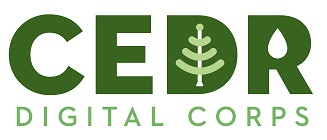I started volunteering with CEDR in July 2021. During our busier seasons I mostly try to help with the data-mining – searching for new information on current incidents. I also enjoy learning more about GIS systems for mapping all this information we have at our fingertips now. But lately I’ve transitioned into creating on an internal tool to try to help CEDR volunteers with the repetitive tasks we need to do.
I’m most motivated because I’m in California and the wildfires we’ve been having the last few years have been getting worse and worse. Several have been close to loved ones. With wildfires becoming more prevalent in and near populated places it’s more important than ever to keep people aware of what dangers they need to be prepared for. The threats aren’t stopping, so I’m not stopping.
The contribution I’m most proud of is the internal tool I’ve created for CEDR volunteers. It’s still in the early phases, but if it turns into a useful tool for CEDR I’ll be very proud to have been able to help with that.
I think the most important work that CEDR does is a combination of curating information the public needs without the unnecessary “fluff” unrelated to the types of incidents we track, and our growing shelter map. Information for the now. Information for people to know in order to preserve life and property before disaster strikes, and what to do and where to go when it strikes.And just a tiny bit less important than those is our maps and animations that show people the scale of wildfires and damage from hurricanes for the people outside of the danger zone to understand. Information for the sustained efforts of helping people recover from incidents: physical needs, monetary needs, and just the core connection we feel when our fellow humans are dealing with loss. It can be very easy for news to feel like it’s happening to other people who don’t matter to you when you only see the headlines. But I think the pandemic has made most people realize that the whole planet is much more interdependent than we ever realized.
My current job is full-time stay-at-home-dad and it’s the hardest and most rewarding job I’ve ever had. I have three sons currently aged 7, 8 and 9. I mostly do my CEDR volunteer work when the kids are in school or asleep. The rest of my time is devoted to keeping my kids alive and well. The pandemic has kept us pretty isolated, but we do try to get out to our local parks and paths for play time, and we walk as much as we can. When I’m not working or volunteering, I also enjoy 3D printing, electronics, and home automation. Before becoming a stay-at-home-dad, I mostly did technical jobs dealing with information technology and audio/visual.

